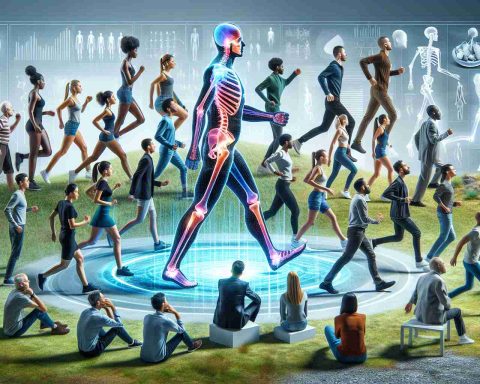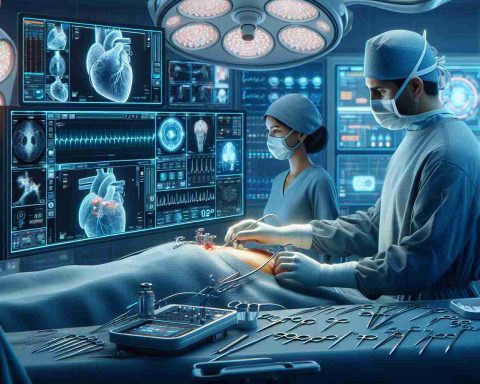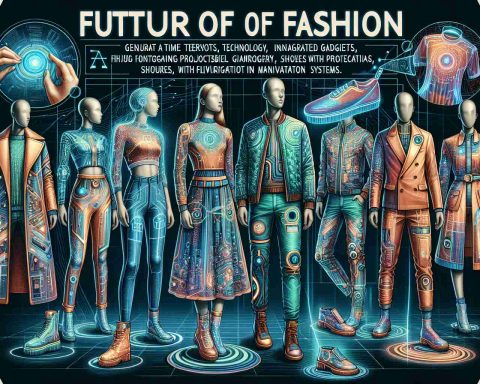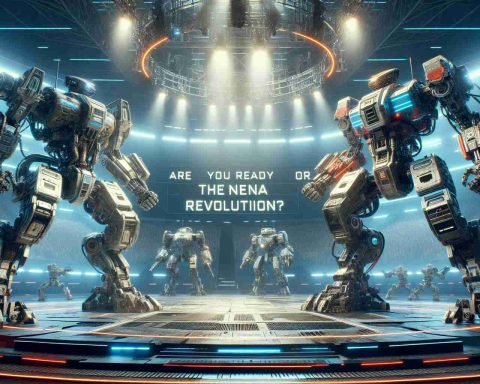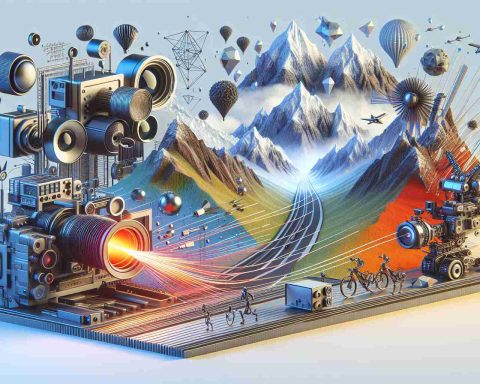The landscape of elderly care is about to change dramatically.
In Hamburg, Germany, Circus SE is at the forefront of innovation in the nursing and elderly care market following its successful launch of the CA-1 robot and the CircusAI platform. With over 30 million individuals requiring care in Europe, this pioneering technology is designed to tackle the urgent need for efficiency and personalized service in care facilities.
Circus has developed AI-driven robots that automate meal preparation and delivery, catering specifically to the unique dietary needs of each resident. Whether someone requires a diabetic-friendly meal or a lactose-free option, these robots ensure high-quality, fresh meals every day. The convenience offered by this technology allows care staff to focus on providing vital human interaction and care, rather than getting bogged down in routine kitchen tasks.
Circus SE’s CEO, Nikolas Bullwinkel, emphasizes their commitment to minimizing the burden on caregivers while enhancing the nutritional offerings in the sector. Recent statistics reveal that about 4.5 million individuals in Germany alone are in need of care, signifying a substantial market for Circus’s robots which aligns with the estimated €500 billion worth of the European nursing care sector.
By integrating advanced robotics and AI within the healthcare framework, Circus aims to significantly enhance care quality while contributing to critical digitalization efforts in the industry.
Revolutionizing Elderly Care: How Circus SE is Taking Nursing to New Heights
The Future of Elderly Care
The elderly care landscape is on the brink of transformation, thanks to groundbreaking innovations in technology. Circus SE, based in Hamburg, Germany, is leading this movement with its CA-1 robot and the CircusAI platform, addressing the pressing challenges faced by the nursing and elderly care industry.
The Growing Demand for Elderly Care
With over 30 million people in Europe requiring care, and approximately 4.5 million of those residing in Germany, the demand for efficient and personalized elderly care services is immense. This has resulted in a burgeoning market estimated to be worth €500 billion for the European nursing care sector. The increasing aging population necessitates innovative solutions that can enhance the quality of care while alleviating the burden on caregivers.
Features of Circus SE’s Technology
1. AI-Driven Robotics: The CA-1 robot automates critical tasks like meal preparation and delivery, tailoring options to meet the specific dietary needs of each resident. By doing so, it ensures that careful attention is paid to health considerations such as diabetes or lactose intolerance.
2. Enhanced Nutritional Offerings: The robots ensure high-quality, fresh meals are provided daily, which is essential for resident health and satisfaction.
3. Efficiency in Care: By handling routine kitchen tasks, the technology frees caregivers to concentrate on providing essential personal interaction and care, creating a more emotionally supportive environment for the elderly.
Advantages of Using CA-1 Robots
– Increased Efficiency: Automated meal preparation reduces time spent on routine tasks.
– Customization: Tailored meal options meet individual dietary needs.
– Improved Care Quality: More time for caregivers to engage with residents, providing better emotional and mental health support.
Limitations and Considerations
While the CA-1 robots represent a significant leap forward, there are limitations to consider:
– Initial Costs: The upfront investment in robotics technology may present a barrier for some care facilities.
– Training Requirements: Staff must be trained to work alongside robotic systems, which may require additional time and resources.
– Technology Dependence: Over-reliance on robotics could lead to diminished human interaction if not properly managed.
Innovations in the Market
Circus SE’s initiative is part of a broader trend toward digitalizing elderly care, leveraging AI and robotics to enhance service delivery. Such innovations reflect a growing acknowledgment of technology’s role in healthcare, aiming to not only improve efficiency but also the quality of life for residents.
Sustainability and Future Trends
The integration of robotics in elderly care not only fulfills urgent operational needs but also aligns with sustainability goals. Efficient meal preparation and delivery can lead to reduced food waste and lower carbon footprints in care facilities.
Looking forward, the elderly care sector may see:
– Increased Implementation: More facilities adopting robotics as the technology becomes more accessible and affordable.
– Expansion of Capabilities: Future versions of care robots may include features like mobility assistance and conversational AI, further enriching the caregiving experience.
– Legislative Support: As the benefits of such technology become more apparent, potential government incentives could spur widespread adoption.
Conclusion
Circus SE is spearheading a revolution in elderly care with its innovative technology, positioning itself as a model for efficient and personalized care in the nursing sector. As the industry evolves, embracing technology will be essential in meeting the needs of a growing elderly population. For more insights and updates on this revolutionary change, visit Circus SE.







